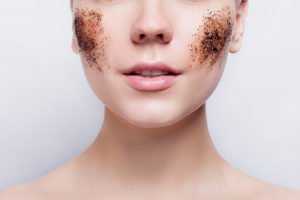Cosmetic products containing microbeads will be banned under a proposal announced by the Minister for the Environment today.
 Marine scientists have been advocating for a ban on the microplastics, which have been found to quickly enter waterways and harm marine life. Other countries have already moved to ban the products from cosmetics, including the United Kingdom, which will enforce a ban from the end of 2017. Many companies have already begun phasing the plastics out of their products.
Marine scientists have been advocating for a ban on the microplastics, which have been found to quickly enter waterways and harm marine life. Other countries have already moved to ban the products from cosmetics, including the United Kingdom, which will enforce a ban from the end of 2017. Many companies have already begun phasing the plastics out of their products.
The Science Media Centre asked experts for their reaction to the announcement. Feel free to use the comments below in your reports.
Dr Sally Gaw, senior lecturer, Department of Chemistry, University of Canterbury, comments:
“Microplastics are small pieces of plastic less than 5mm in diameter. There are two types of microplastics; manufactured microplastics such as microbeads; and microplastics formed from the breakdown of larger plastic items in the environment. Microplastics degrade very slowly.
“Microplastics are of concern as they are widespread in oceans and have been found in an increasing number of marine animals. Aquatic animals including fish and shellfish can ingest microplastics and animals may mistake them for food as they can look like prey items. Ingesting microplastics can trick animals into feeling full, causing starvation and microplastics can damage digestive tracts affecting the health of the animals. In addition, microplastics can concentrate contaminants from the water which may be transferred to the animals when they ingest microplastics.
“Microbeads are commonly used in personal care products like body scrubs as abrasives and are washed down the drain. Microbeads are not removed by wastewater treatment plants and will be discharged with the treated wastewater into the environment.
“Banning microbeads in personal care products is a great step forward that will remove one source of microplastics entering the oceans. Further steps will be required to reduce the enormous volume of plastics entering our oceans each year. We need to re-evaluate our love affair with plastic, and get smarter about how and when we use plastic if we are to protect our oceans.”
Associate Professor Mary Sewell, School of Biological Sciences, University of Auckland, comments:
“Microplastics are very small (<5mm) and microplastics in facial cleansers are very very small – most <1mm and some as small as 0.01mm. This size plastic can be consumed by smaller members of the plankton community that usually feed on phytoplankton.
“Plastic floats, so it is not captured by most water treatment plants which rely on material sinking – thus any plastic in water that goes down your drain ends up in the oceans. Plastic does not need to be in these products – there are natural alternatives (e.g. oatmeal and apricot husks)
“We are behind the rest of the world as many countries have already banned these products.”